Hangul Day // The Day that Celebrates the Korean Alphabet
A Complete Guide to Hangul Day
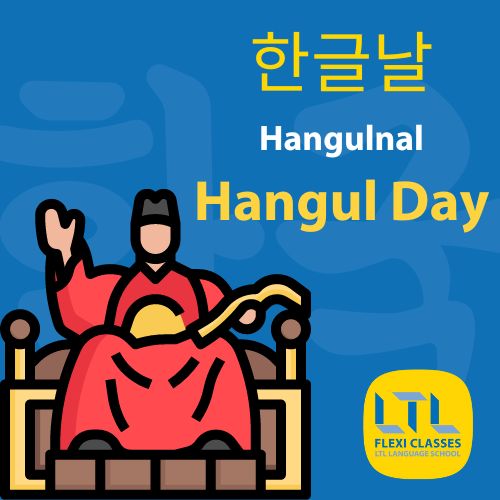
Welcome to this introduction to Hangul Day.
In Korean, it’s known as 한글날 (hangulnal)!
DID YOU KNOW | Sometimes people also spell 한글 (hangul) as hangeul.
If you are learning Korean, you will already know what Hangul 한글 is, because it’s the first thing you learn when you study the language.
For people who don’t know, Hangul is the Korean alphabet.
Hangul Day is a public holiday that commemorates the Korean alphabet every year on October 9th.
Hangul Day | An Introduction to Hangul
Hangul Day | History of Hangul Day
Hangul Day | How to Celebrate Hangul Day
Hangul Day | When is Hangul Day?
Hangul Day | Useful Vocabulary
BONUS | Free Downloads: Alphabet + Worksheets
Hangul Day | FAQ’s
If you want to know more about Korean holidays, check out our introduction to public holidays in South Korea 👇!
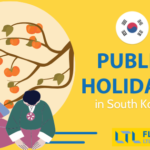
An Introduction to Public Holidays in South Korea
There are 11 public holidays in South Korea. Chuseok, Seollal, Children’s Day… Find out what these days are all about and celebrate with friends.
Quick Introduction
Hangeul was created during the reign of King Sejong on October 9th 1446.
Initially, this alphabet was called Hunminjeongeum 훈민정음 .
The first version of Hangeul was introduced by a book of the same name, explaining the logic of the characters through their shape, and Hunminjeongeum was thus taught to the population.
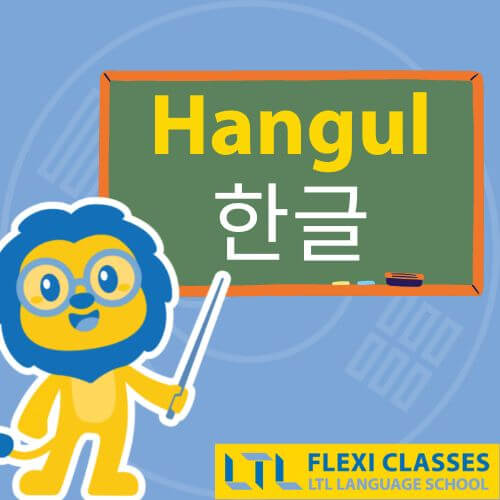
The term Hangul was introduced by Chu Si-gyeong in 1912.
Before Hangul was used as an alphabet in South Korea, Koreans used Chinese characters (hanja), which was a problem because many people couldn’t read them.
A major tool of the Korean resistance during the war, its use exploded at the end of the Second World War, once Japan was defeated.
Hangeul enabled the entire population to become literate and became the official language of South Korea.
Originally, the Hangul consisted of 28 letters, but over time 4 letters were lost. Today there are 24 basic letters: 14 consonant letters and 10 vowel letters.
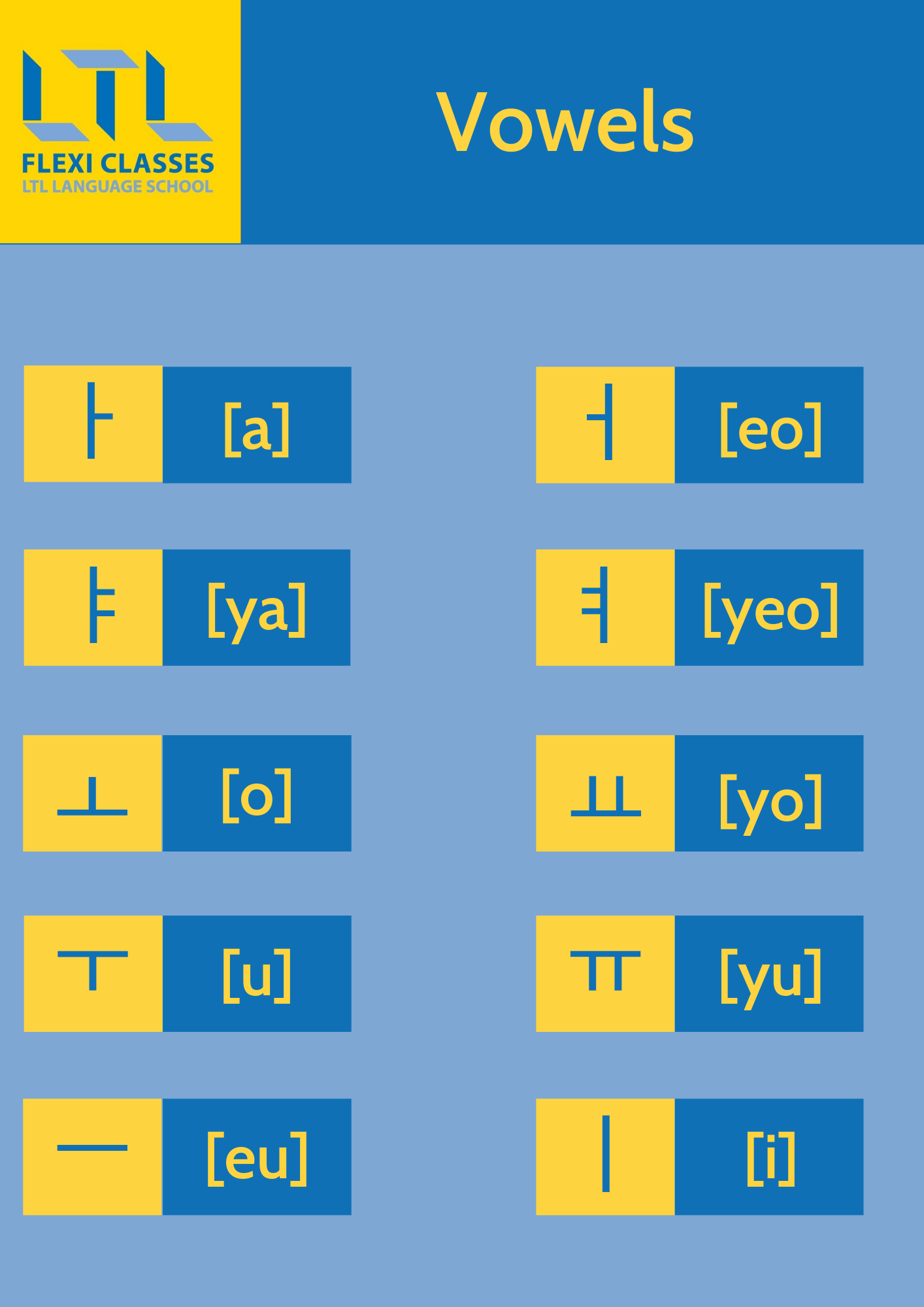
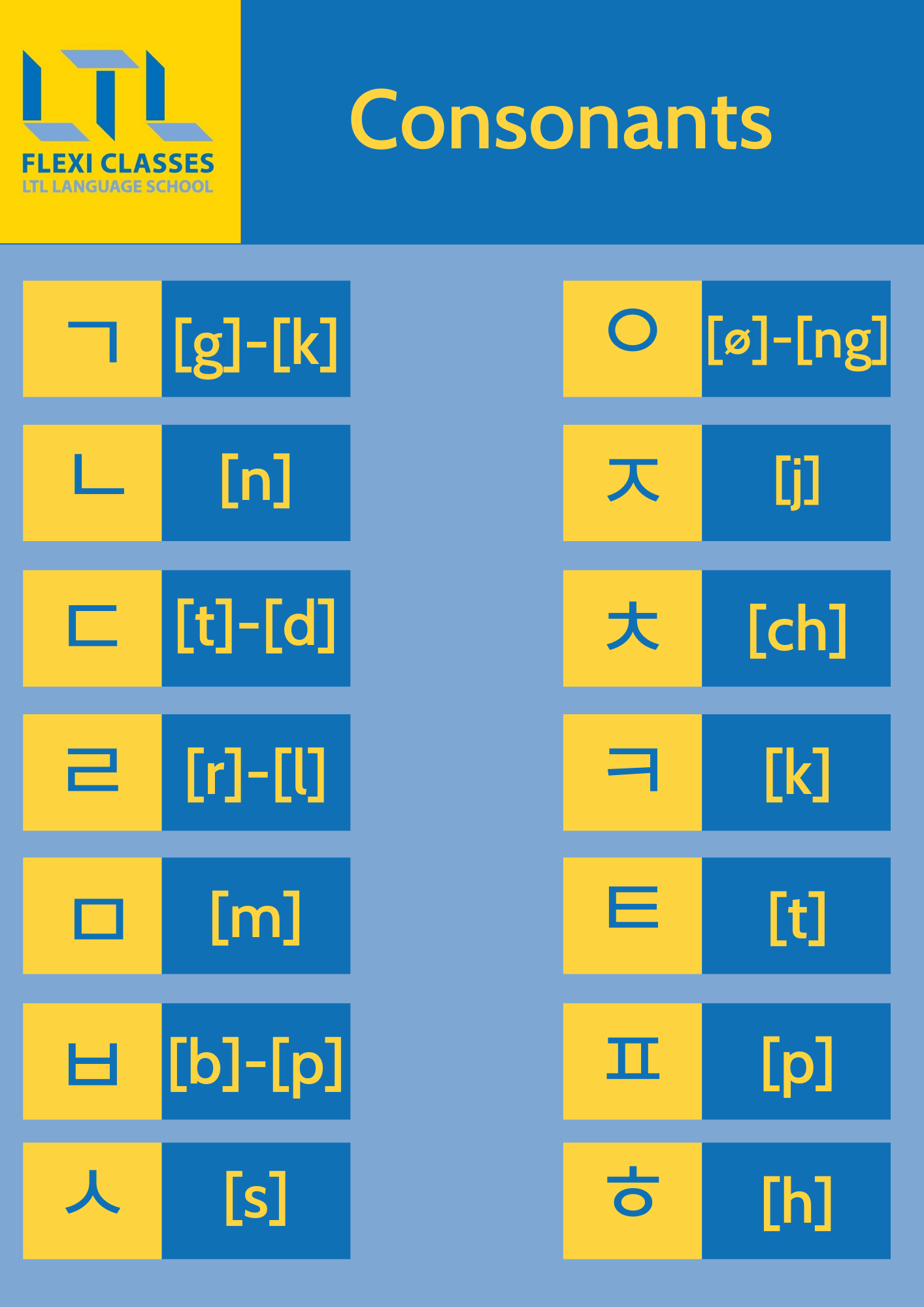
Internationally, experts have defined Hangul as the best writing system, because of its ability to transcribe a large number of sounds and because it’s easy to read.
Honestly – it might look difficult but Hangul can be learned in a matter of hours and opens a whole load of new doors for you (especially given the fact there are a tonne of loanwords in Korean too)
FUN FACT | In 1989, UNESCO created the King Sejong Literacy Prize.
For everything you need to know about Hangul from A to Z, it happens here! 👇

The Korean Alphabet | A Complete and Definitive Guide to Hangul 한글
Learning Korean? Need to understand the Korean Alphabet? This complete guide will tell you everything about the 14 consonant letters and 10 vowels of Hangul
Hangul Day
Hangeul Day takes place on October 9th and commemorates the invention of Hangul.
This is a very important day in Korean culture, as it signifies the birth of their own writing system.
This day is marked in red on Korean calendars, which means that this day is a public holiday. But it wasn’t always so.
Between 1991 and 2012, Hangul Day lost its holiday status and workers weren’t given a day off.
Fortunately, its status was reinstated in 2012.
Nowadays, you can enjoy the crisp autumn weather and activities that Korea usually experiences in October instead of having to work or go to school.
How to Celebrate Hangul Day?
Most of the time people celebrate this day by staying at home and taking a day off from work and school.
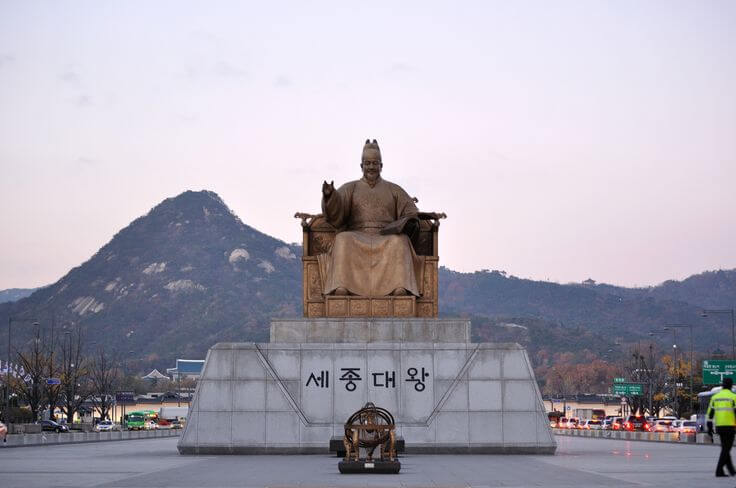
However, in Seoul, it’s not uncommon to see thousands of people going under the golden statue of King Sejong and visiting the King Sejong Museum.
The museum is easy to find, the entrance of the museum is at the back of the statue.
It is located directly under the large golden statue of King Sejong on Gwaghwamun Square, opposite Gyeongbok Palace.
Inside the museum, there are several exhibits that explain the creation of many of the advances made during King Sejong’s reign, including Hangul.
King Sejong’s reign is often considered a golden period, when knowledge, rather than war was the highlight of the era.
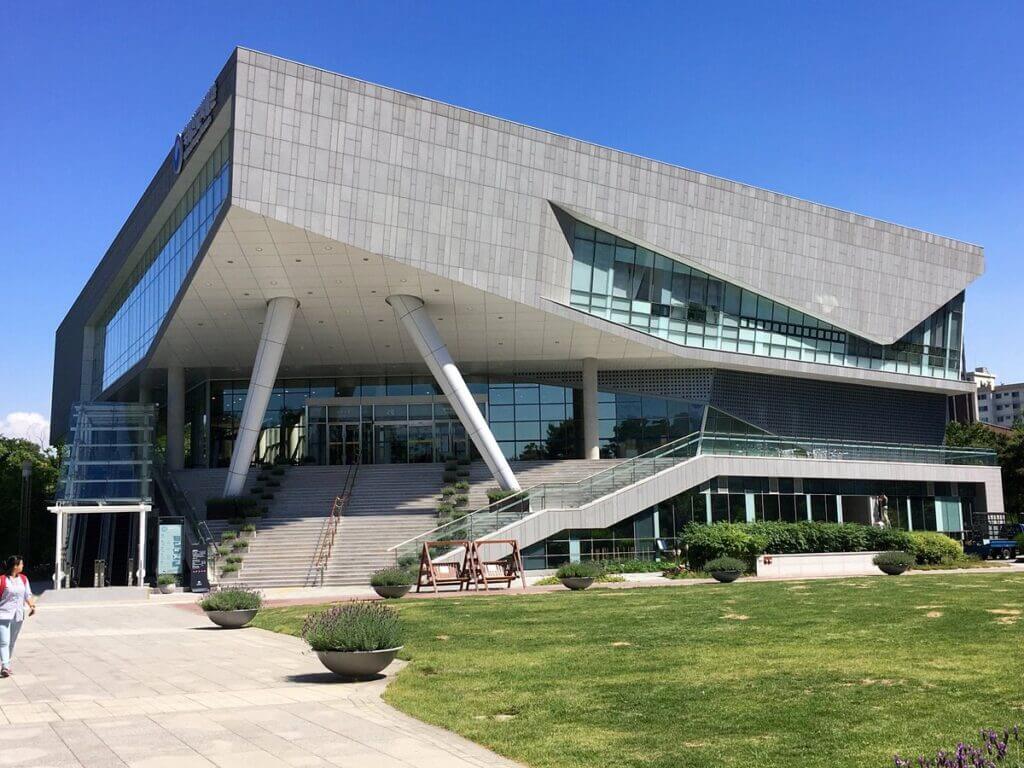
Koreans also visit the National Hangul Museum, where they can relive the history of the creation of the alphabet and participate in various activities.
They can also learn more about King Sejong’s reign by visiting the King Sejong Memorial Centre and the Sejong Iyagi Centre providing an insight into his history.
Korean people also celebrate their beautiful handwriting by holding calligraphy workshops on this important day.
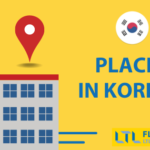
Places in Korean | 100+ Useful Words for Beginners
Get a head start by learning the most common places in Korean and the vocabulary related to some of them. The bank, hospital and more. You’ll be ready.
When is Hangul Day?
As we mentioned before, Hangul day is always celebrated on 9th October every year.
| Years | Date | Day | Holiday |
|---|---|---|---|
| 2024 | October 9th | Wednesday | Hangul Day |
| 2025 | October 9th | Thursday | Hangul Day |
| 2026 | October 9th | Friday | Hangul Day |
FUN FACT | When a holiday falls on Sunday in South Korea, the following Monday is also a day off.
Useful Vocabulary
Here are some useful words that you can use or find during Hangul Day:
| English | Korean | Transliteration |
|---|---|---|
| Hangul | 한글 | Hangul |
| Hangul Day | 한글날 | Hangulnal |
| South Korea | 한국 | hangug |
| King Sejong | 세종대왕 | sejongdaewang |
| Public holiday | 공휴일 | gonghyuil |
| Hunminjeongeum (first version of Hangul) | 훈민정음 | hunminjeongeum |
| Chu Si-gyeong | 주시경 | Chu Si-gyeong |
| UNESCO King Sejong Literacy Prize | 유네스코 세종대왕 문해상 | yuneseuko sejongdaewang munhaesang |
BONUS | FREE DOWNLOADS
If you’re just starting in your Korean language studies, you’ll need to learn the alphabet first.
We’ve got some handy flashcards to help you remember all vowels and consonants of the Hangul alphabet:
Make sure you also download these Korean Writing Worksheets to practice your handwriting. All PDFS are ready to be printed:
There are many national holidays in South Korea, and all come with their own traditions and history. Check out these to discover even more about Korean history and culture.
Have you ever celebrated a holiday in South Korea? Share your story with us in the comments!
FAQ’s
When is Hangul Day?
Hangeul Day takes place on October 9th and commemorates the invention of Hangul, which is the alphabet used in Korea.
How do I write ‘Hangul’ in Korean?
한글 is the Korean word for hangul.
How to say ‘Hangul Day’ in Korean?
‘Hangul day’ in Korean is 한글날 (Hangulnal).
How do Koreans celebrate Hangul Day?
Most of the time people celebrate this day by staying at home and taking a day off from work and school.
However, in Seoul, it’s not uncommon to see thousands of people going under the golden statue of King Sejong and visiting the King Sejong Museum.
Koreans also visit the National Hangul Museum, where they can relive the history of the creation of the alphabet and participate in various activities.
They can also learn more about King Sejong’s reign by visiting the King Sejong Memorial Centre and the Sejong Iyagi Centre providing an insight into his history.
Korean people also celebrate their beautiful handwriting by holding calligraphy workshops on this important day.
Where can I learn Hangul?
You can learn Hangul right here on the LTL website. Check out our guide to Hangul.
Or,
You can also take classes with a real teacher on our online platform Flexi Classes.
We offer classes online and in Seoul, in groups or individually and you can book a class at your convenience.
How to practice writing in Hangul?
The best way to practice your writing skills is to write!
Download our Korean Worksheets to practice your Korean handwriting.
Can I learn Korean in South Korea?
Yes!
We also offer Korean courses in Seoul.
Want More From LTL?
FANCY LEARNING KOREAN? Check out our online Korean courses here.
We offer a 7-day free trial to all online students where you can study Korean 24/7.
Want to study Korean in Korea instead? Our Korean courses in Seoul can either be taken in small groups of no more than 5 students or individually for a more tailored experience.
We even offer incredible homestay experiences in Seoul too.
To top it all off, it certainly doesn’t end with Korean. Check out the other languages we teach 👇🏻









